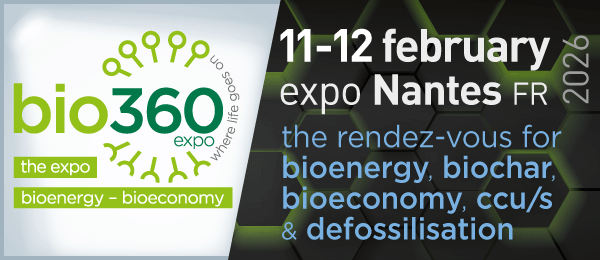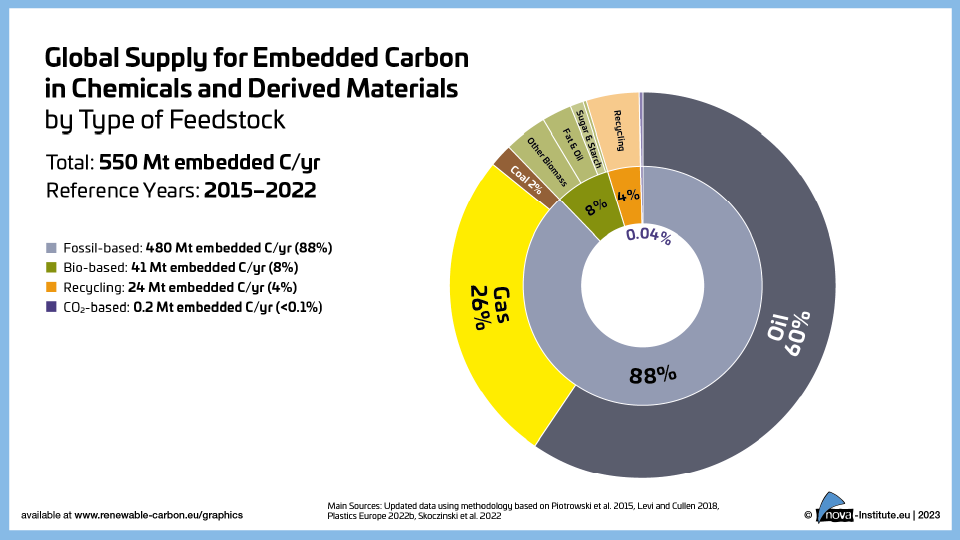
Textiles, bottles, packaging, soaps, detergents, buildings, insulation, car interiors, tyres, electronics or batteries – Chemistry is present in virtually every material and modern product to achieve the desired performance. In fact, it is at the beginning of almost every value chain and it is essential to our daily lives. Carbon is a main component of most chemicals and materials and it is rightly described as the universal building block of life. However, to date almost 90% of the embedded carbon comes from fossil carbon in the ground (oil, natural gas and coal) and is ultimately released into the atmosphere as CO2.1
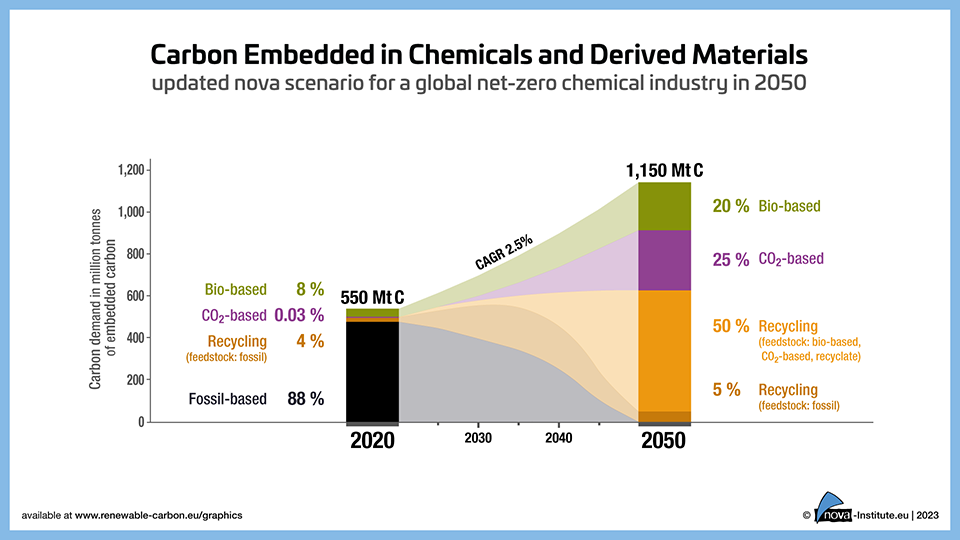
Renewable carbon to enhance defossilisation
Decoupling chemistry from fossil carbon means finding other sources of carbon that do not result in additional CO2 emissions. The global chemicals and materials industry currently uses about 550 million tonnes per year of embedded carbon in its products, and this amount is expected to double by 2050. Currently, only 8 % of this carbon comes from biomass, 4% from recycling and 0.04% from carbon capture utilisation.1 Numerous innovations and investments are needed to increase the share of these three renewable carbon sources to almost 100%. In light of the escalating challenges posed by climate change, the imperative for societal transformation has never been more evident. Addressing this global crisis requires a collective effort based on sound analyses and factual understanding.
Consumers want sustainable solutions, but expect misinformation and greenwashing
Today, many consumers are actively looking for sustainable solutions. The GfK Sustainability Index indicates a slight increase in demand for sustainable products in Germany.2 However, almost two thirds (64%) of the German population are concerned about misinformation. In fact, concerns about misinformation are among the top three fears, ranking as high as concerns about climate change or fears of tensions between Europe and Russia.3 At the same time, EU regulations are tightening. An increasing number of companies are being forced to adapt to sustainability, e.g. through the recently adopted Corporate Sustainability Reporting Directive or the planned Green Claims Directive. To sum up: B2C and B2B markets are under pressure to provide sustainable solutions backed by science, while consumers are demanding clearer and more trustworthy information.
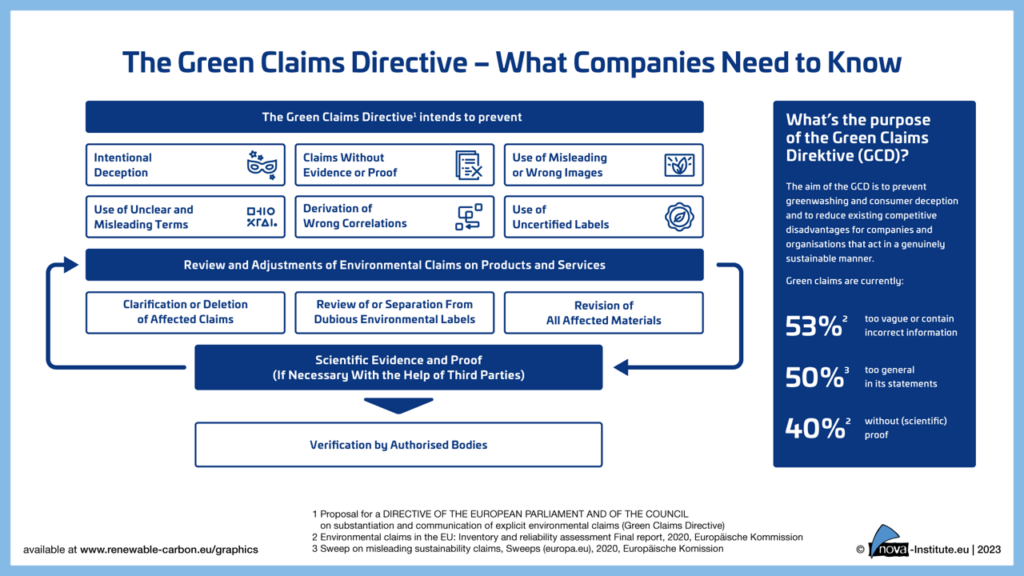
How to overcome the credibility gap
At nova-Institute, we are committed to providing comprehensive insights and data-driven perspectives to empower individuals and organisations navigate the complexities of climate change. Through rigorous research and a dedication to accuracy, we strive to contribute to the essential dialogue on the societal change needed to effectively address climate change. Five strong departments at nova work closely together to provide the best service and expertise. It’s a unique combination of Communications, Technology & Markets, Economy & Policy, Sustainability and – if you want to go one step further and position yourself as an active supporter of defossilisation through renewable carbon – the Renewable Carbon Initiative for which nova manages the executive office.
- Many business challenges require such close collaboration across disciplines. We welcome and integrate this diversity of knowledge and offer a range of valuable assets. From a communications and marketing perspective, we emphasise the following to reach target audiences with maximum credibility:
- Drawing on industry-specific knowledge that provides a holistic view and expertise
- Using a huge database of excellent contacts to reach relevant target audiences
- Providing marketing channels that are widely used and recognised for their excellence
- Creating multiple touch points to reach the audience – be it B2B or B2C
- And, where appropriate, providing scientific evidence to support green claims.
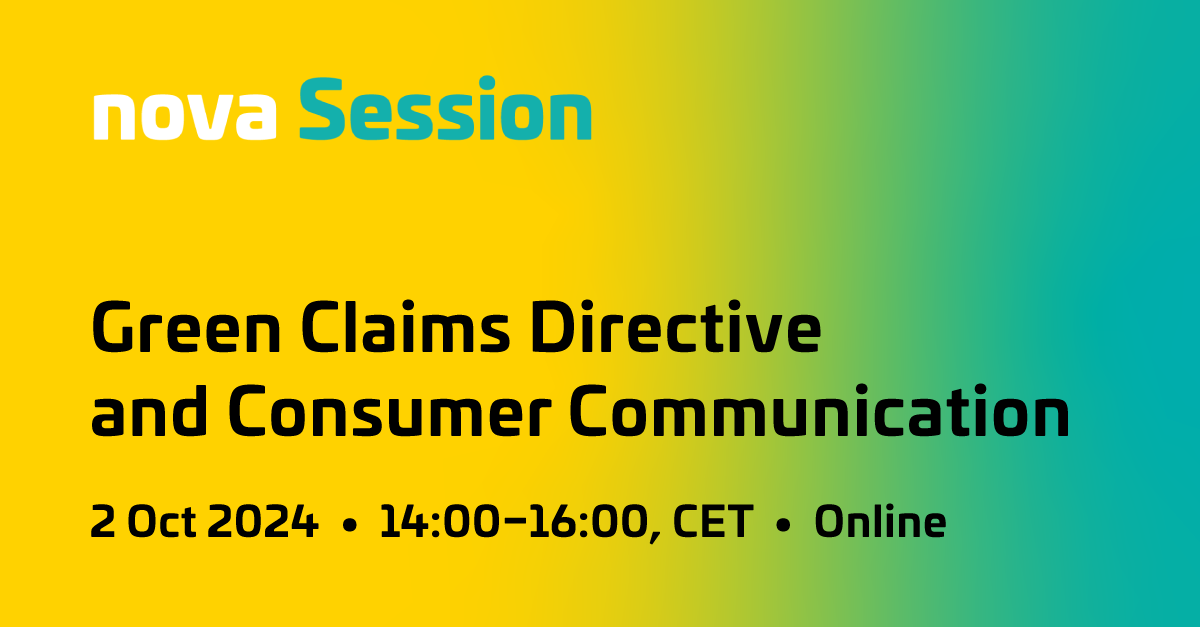
Interested to gain more insights?
Join nova’s next webinar on “Green Claims Directive and Consumer Communication”, 2 Oct. 2024, 2 – 4pm, with Lara Dammer Head of Economy & Policy at nova-Institute, Dr. Stefanie Fulda, Head of Communications, at nova-Institute, Dr. Asta Partanen, Senior Expert Labelling & Marketing
Sources
1 Kähler, F., Porc, O. and Carus, M. 2023. RCI Carbon Flows Report: Compilation of supply and demand of fossil and renewable carbon on a global and European level. Editor: Renewable Carbon Initiative, May 2023.
2 GfK Nachhaltigkeitsindex 2024
3 Hirndorf, D. & Roose, J.: Angst vor Desinformation und Vertrauen in öffentlich-rechtliche Medien – repräsentative Umfragen, In: Monitor Wahl- und Sozialforschung, Konrad Adenauer Stiftung, März 2023.
Supplier
nova-Institut GmbH
Renewable Carbon Initiative (RCI)
Share
Renewable Carbon News – Daily Newsletter
Subscribe to our daily email newsletter – the world's leading newsletter on renewable materials and chemicals










